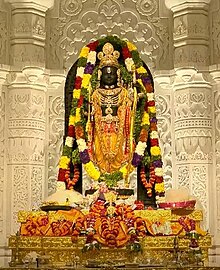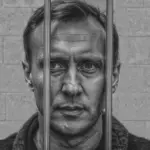January 28, 2024
We hope you enjoy our articles. Please note, we may collect a share of sales or other compensation from the links on this page. Thank you if you use our links, we really appreciate it!
The Rama temple was consecrated in Ayodhya, a city in northern India, a few days ago. Media outlets all over the world covered it and some of them interpreted it as an exclusivist project of one political party and argued that the construction of the temple undermine the pluralist ethos of India. This article aims at addressing some of the misconceptions involving the temple building.
The temple building was possible only when the Indian Supreme Court gave a verdict in 2019. The temple movement was going on for decades, rather for centuries, before the independence of India. Hundreds of thousands of people actively participated, sacrificed their lives, to see the building of the temple on a location on which originally stood the Rama temple. The people of India have faith in the judicial system, particularly the Supreme Court. True, in an era of competitive democratic politics, political parties do their best to shape public opinion to garner votes – and that in some way appears natural, though degrees vary, as democratic politics is based on how much political leaders sway public opinion in their favor.
To say that the temple promotes a narrow, exclusivist, vision of India in which majority Hindus undermine minority Muslims is, what I call, a tunnel vision that does not consider the larger picture. Rama is not only a Hindu God to be worshipped in temples on certain days and times, but is a way of life in Hindu society as millions of Hindus follow the ideal of Rama in everyday life and practices. Rama is called Maryada Purusha (in simple terms, man of principles) or Purushottama (best among men) and many Indian rituals, customs and practices revolve around Rama. To say that the temple is a pet project of a party and it has nothing to do with Hinduism and Hindu society amounts to belittling millions of Hindus and their aspirations. True, the ruling Bharatiya Janata Party had the temple in its electoral manifesto, but calling the temple an exclusive project of a party undermines the sacrifices made by religious gurus, Shankaracharyas, Akharas, and many people who are not part of any political party. One can raise questions on politics around the temple, but to say that temple promotes an exclusivist agenda undermines the role of judiciary, which still draws respect from most Indians, and also the role of the people, who transcend political parties, in the temple movement.
Democracy has its pitfalls. When everything is about numbers, about how many votes a political party gains in elections is all that matters, parties resort to all means to win elections. That is one of the reasons why Greek thinkers like Plato distrusted democracy as they argued that manipulative political leaders, without vision and true education, mislead people; they emphasized on rulers who embody enlightened reasoning and a deep cultivation of philosophy. The idea of the philosopher king is important here. Unfortunately, it looks like a chimera to search for a philosopher king in our modern world. And, doubly unfortunately, if a politician becomes honest and unselfish, they would be considered naïve, bound to be a failure.
True, certain political leaders played an active role than others in the temple movement. For example, L. K. Advani’s Rath Yatra in 1990 played a role in mobilizing people for the building of the temple, but the demolition of the mosque in 1992 by a mob was a tragic incident which no one should approve of, more so in a democratic society. Advani himself called the day of demotion as the ‘saddest day of my life’, and his colleague A. B. Vajpayee who became Prime Minister of India expressed ‘regrets, agony, anguish’ at the incident. The logic that a historical wrong, the demotion of Rama temple by a Muslim ruler, by another wrong, the demolition of the mosque, could not make sense in the democratic state and society of India. It would be more apt in theocratic states like Afghanistan which demolished many ancient sites like Bamiyan Buddha. The failed Islamic State of Iraq and Syria, and many existing theocratic states, thrive on such exclusivist ideas and agendas.
To the analysts who argue that there was no Rama temple on the site, they must consider these points. The Supreme Court judges gave the judgment for temple construction after hearing all the sides. Archeological excavations pointed to the existence of the temple on the site. In a recent lecture, K. K. Muhammed, who was a part of an archeological mission, elaborated the efforts by his team to excavate temple remains, and despite all the pressures he held the position that there was a temple on the site. About the historicity of Rama I would like to quote these words from Sri Aurobindo, “As for the Avatarhood, I accept it for Rama first because he fills a place in the scheme and seems to me to fill it rightly — and because when I read the Ramayana I feel a great afflatus which I recognise and which makes of its story…a parable of a great critical transitional event that happened in the terrestrial evolution and gives to the main character’s personality and actions a significance of the large typical cosmic kind which these actions would not have had if they had been done by another man in another scheme of events. The Avatar is not bound to do extraordinary actions, but he is bound to give his acts or his work or what he is — any of these or all — a significance and an effective power that are part of something essential to be done in the history of the earth and its races.”
My prayer – let Hindus celebrate the Rama temple and at the same time follow the ideal of Rama in everyday life and practice! Not only different people, but even animals, had received love and compassion from the ruler Rama. To use the language of Plato, Rama was a Philosopher King. And in the 21st century, we need to revive the ideal of Rama, and bring philosopher kings to power. Though the contemporary trends appear to belie such a hope, the peace-loving soul in me is not willing to give it up.



